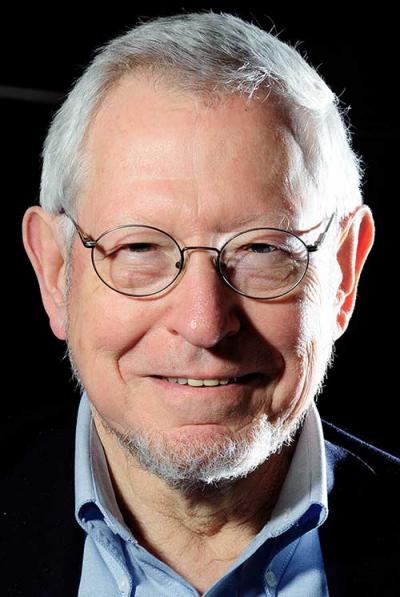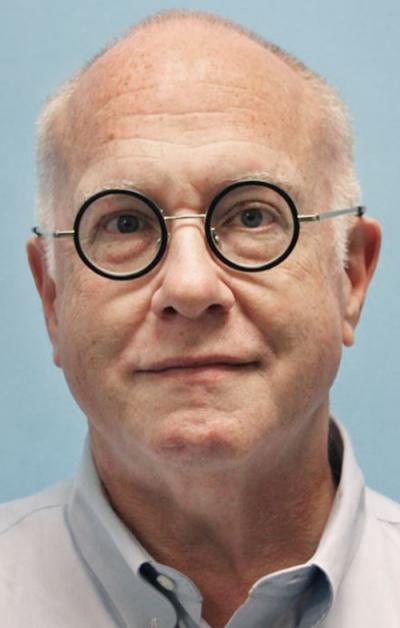

 Within the next year, the ICANN Board may well face a decision that will help determine whether ICANN is capable of serving the global public interest or whether it is degenerating into an industry-controlled self-regulatory association. The issue can be framed quite simply: will ICANN approve a process for the creation of a new wave of new generic top level domains that will include "closed generic" gTLDs?
Within the next year, the ICANN Board may well face a decision that will help determine whether ICANN is capable of serving the global public interest or whether it is degenerating into an industry-controlled self-regulatory association. The issue can be framed quite simply: will ICANN approve a process for the creation of a new wave of new generic top level domains that will include "closed generic" gTLDs?
 No, this topic hasn't yet been exhausted: There's still plenty more conversation we can and should have about the proposed sale of the .ORG registry operator to a private firm. Ideally, that conversation will add more information and more clarity about the issues at stake and the facts that underpin those issues. That's why I'm planning to attend today's event at American University where the sale's proponents, opponents and undecideds will have a tremendous opportunity to better understand one another.
No, this topic hasn't yet been exhausted: There's still plenty more conversation we can and should have about the proposed sale of the .ORG registry operator to a private firm. Ideally, that conversation will add more information and more clarity about the issues at stake and the facts that underpin those issues. That's why I'm planning to attend today's event at American University where the sale's proponents, opponents and undecideds will have a tremendous opportunity to better understand one another.
 Given the level of public interest in Ethos' acquisition of Public Interest Registry ("PIR") from the Internet Society, it is no surprise that this agreement continues to attract press attention. Ethos welcomes open discussion on this important investment, and we are of course following the media coverage closely. Unfortunately, it is not always possible to respond point-by-point to every article, so I would like to take this opportunity to address several mischaracterizations of the deal recently reported by Wired, Deutsche Welle, and others.
Given the level of public interest in Ethos' acquisition of Public Interest Registry ("PIR") from the Internet Society, it is no surprise that this agreement continues to attract press attention. Ethos welcomes open discussion on this important investment, and we are of course following the media coverage closely. Unfortunately, it is not always possible to respond point-by-point to every article, so I would like to take this opportunity to address several mischaracterizations of the deal recently reported by Wired, Deutsche Welle, and others.
 If it feels like the work of the latest group addressing registration data within ICANN has been going on forever, try participating in it! Since the summer of 2018, the team has regularly been meeting for several hours each week, participating in numerous face-to-face meetings and exchanging thousands of emails. Last week in Los Angeles, the team got together once again to continue our Phase 2 work creating policy that will (among other issues) govern the disclosure of non-public registration data to third parties.
If it feels like the work of the latest group addressing registration data within ICANN has been going on forever, try participating in it! Since the summer of 2018, the team has regularly been meeting for several hours each week, participating in numerous face-to-face meetings and exchanging thousands of emails. Last week in Los Angeles, the team got together once again to continue our Phase 2 work creating policy that will (among other issues) govern the disclosure of non-public registration data to third parties.
 The ICANN Security and Stability Advisory Committee (SSAC) and the Internet Society Deploy360 Programme are planning a DNSSEC and Security Workshop during the ICANN67 meeting held from 07-12 March 2020 in Cancun, Mexico. The original DNSSEC Workshop has been a part of ICANN meetings for many years and has provided a forum for both experienced and new people to meet, present, and discuss current and future DNSSEC deployments.
The ICANN Security and Stability Advisory Committee (SSAC) and the Internet Society Deploy360 Programme are planning a DNSSEC and Security Workshop during the ICANN67 meeting held from 07-12 March 2020 in Cancun, Mexico. The original DNSSEC Workshop has been a part of ICANN meetings for many years and has provided a forum for both experienced and new people to meet, present, and discuss current and future DNSSEC deployments.
 Two and a half months ago, shortly after the ICANN66 meetings in Montreal, the ICANN stakeholder community was jolted by the announcement that the Internet Society (ISOC) had entered into an agreement to sell the wholly owned PIR non-profit that holds the .org registry contract. The sale was to be for $1.13B USD to the hastily assembled venture capital company Ethos Capital. The sale was presented as a done deal awaiting approval by the ICANN Board.
Two and a half months ago, shortly after the ICANN66 meetings in Montreal, the ICANN stakeholder community was jolted by the announcement that the Internet Society (ISOC) had entered into an agreement to sell the wholly owned PIR non-profit that holds the .org registry contract. The sale was to be for $1.13B USD to the hastily assembled venture capital company Ethos Capital. The sale was presented as a done deal awaiting approval by the ICANN Board.
 ICANN's repeated betrayals of the public interest have created the conditions for Ethos Capital's proposed purchase of .Org. The growing outrage directed at ICANN is raising questions about ICANN's legitimacy and the wisdom of having entrusted ICANN with oversight over the domain name system ("DNS"). ICANN has shown itself to be out of touch with and unresponsive to the public interest. ICANN now has an opportunity to remember its mission...
ICANN's repeated betrayals of the public interest have created the conditions for Ethos Capital's proposed purchase of .Org. The growing outrage directed at ICANN is raising questions about ICANN's legitimacy and the wisdom of having entrusted ICANN with oversight over the domain name system ("DNS"). ICANN has shown itself to be out of touch with and unresponsive to the public interest. ICANN now has an opportunity to remember its mission...
 Tomorrow EFF, NTEN, Fight for the Future, Demand Progress, and other organizations will hold a rally outside of ICANN HQ from 9-11 am. You know about the rally, and you should all attend this event! Whatever your feelings about the sale of .ORG, you are leaders of the GNSO, the body that makes gTLD policy. This is a gTLD event, and registrants are trying to talk with ICANN, and they are trying to talk with YOU.
Tomorrow EFF, NTEN, Fight for the Future, Demand Progress, and other organizations will hold a rally outside of ICANN HQ from 9-11 am. You know about the rally, and you should all attend this event! Whatever your feelings about the sale of .ORG, you are leaders of the GNSO, the body that makes gTLD policy. This is a gTLD event, and registrants are trying to talk with ICANN, and they are trying to talk with YOU.
 Private equity firm Ethos Capital's attempt to take control of .org, the Internet domain that's home to most of the world's non-profit and public-benefit organizations, has triggered an interesting crisis in Internet governance. The Internet Corporation for Assigned Names and Numbers, or ICANN, is the body responsible for regulating the global domain name industry. For the first time since oversight responsibility over ICANN was passed from the United States National Telecommunications and Information Administration...
Private equity firm Ethos Capital's attempt to take control of .org, the Internet domain that's home to most of the world's non-profit and public-benefit organizations, has triggered an interesting crisis in Internet governance. The Internet Corporation for Assigned Names and Numbers, or ICANN, is the body responsible for regulating the global domain name industry. For the first time since oversight responsibility over ICANN was passed from the United States National Telecommunications and Information Administration...
 When .org prices rise, who suffers – nonprofits or speculators? Will Ethos Capital raise prices more aggressively than ISOC would? Vint Cerf attributed concerns about higher prices to speculators: "Of course, companies that hold domain names in the tens of thousands for speculative purposes might find such increases more troubling, but I don't have much sympathy for that business model in the context of the organizations the .org brand is intended to serve."
When .org prices rise, who suffers – nonprofits or speculators? Will Ethos Capital raise prices more aggressively than ISOC would? Vint Cerf attributed concerns about higher prices to speculators: "Of course, companies that hold domain names in the tens of thousands for speculative purposes might find such increases more troubling, but I don't have much sympathy for that business model in the context of the organizations the .org brand is intended to serve."